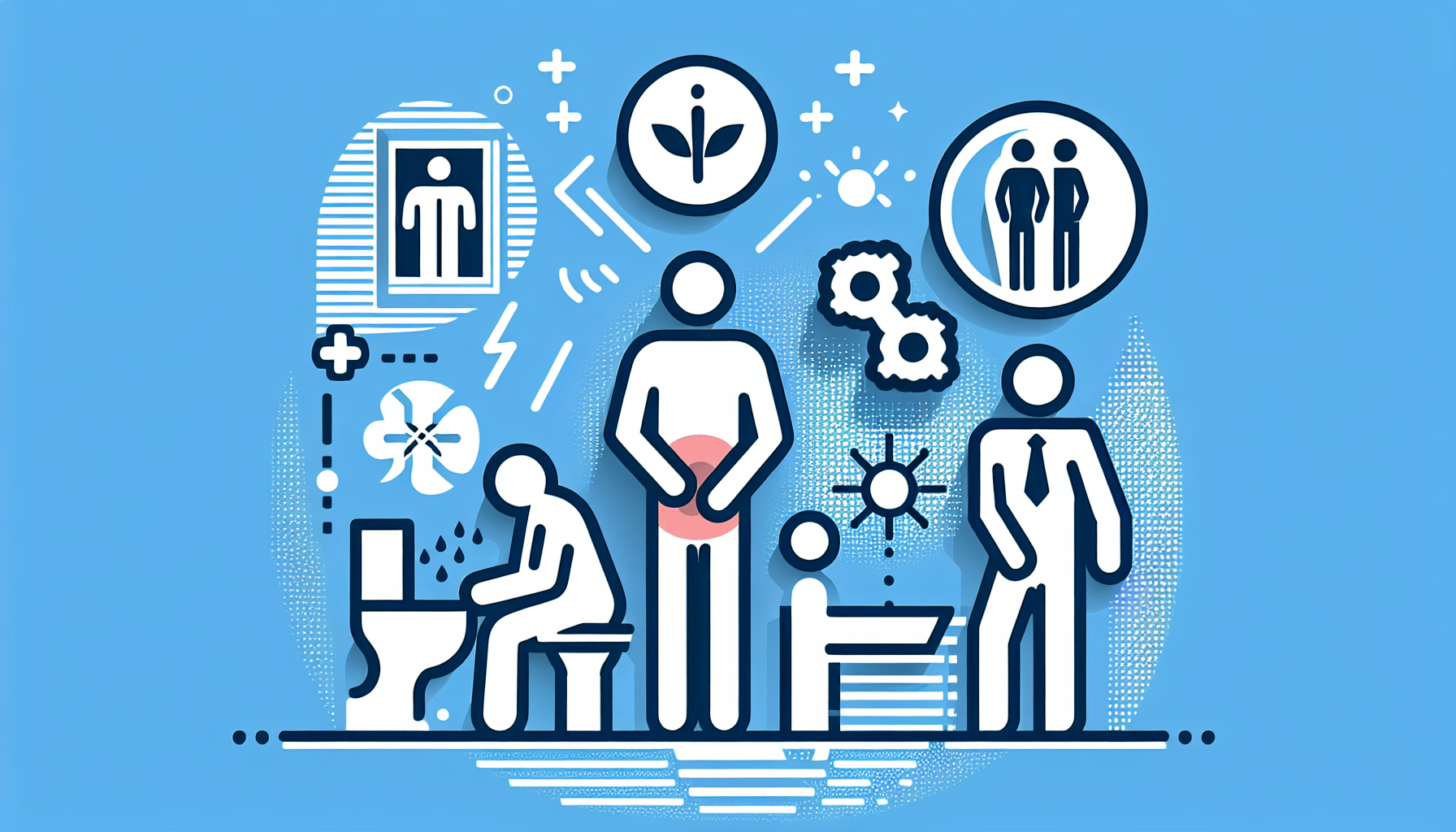Urinary incontinence is a condition where you have trouble controlling when urine comes out of your body. It can be a frustrating and embarrassing problem, but understanding what's causing it can help you find ways to treat and cope with it.
How Urinary Incontinence Happens
Normally, urine moves from your kidneys to your bladder through tubes called ureters. Your bladder stores the urine until your brain receives a signal that it's full. Then, the urine leaves your body through a tube called the urethra. Urinary incontinence occurs when there's a problem with this process, such as:
Your bladder squeezes too hard or at the wrong time
The muscles around your urethra don't work properly
Your bladder doesn't empty completely and gets too full
Something is blocking your urethra
Your urinary tract didn't form correctly
Common Causes of Urinary Incontinence in Men
Several health and lifestyle factors can contribute to urinary incontinence in men, including:
Prostate Problems
An enlarged prostate due to benign prostatic hyperplasia (BPH) or prostate cancer can block the urethra and make it difficult for the bladder to empty completely. Prostate cancer treatments, such as radiation or surgery, can also damage the nerves that control the bladder.
Certain Diseases
Diseases that can damage the nerves responsible for bladder control include:
Multiple sclerosis
Diabetes
Stroke
Alzheimer's disease
Parkinson's disease
Surgery
Major bowel surgery, lower back surgery, and prostate surgery can cause urinary incontinence by damaging the nerves in the urinary tract.
Aging
As men age, the bladder loses some of its tone and strength, which can lead to leaks.
Obesity and Lack of Exercise
Excess weight puts added pressure on the bladder, making it harder to hold urine for long periods. Lack of physical activity can also contribute to this problem.
Chronic Coughing
Frequent coughing due to illness or allergies can put stress on the bladder and pelvic floor muscles, leading to leaks if these muscles are weak.
Urinary Tract Infections (UTIs)
Bacterial infections in the urinary tract can irritate the bladder and cause incontinence.
Constipation
Hard or backed-up stool can press on the nerves of the urinary system, causing leaks.
It's important to note that while alcohol and certain medications like diuretics, antidepressants, sedatives, narcotics, and over-the-counter cold and diet medicines don't directly cause urinary incontinence, they can worsen symptoms.
When to See a Doctor
If you experience any of the following symptoms, it's time to consult with your doctor:
Frequent and sudden urges to urinate
Leaking urine when sneezing, coughing, or standing up
Random urine leaks not associated with coughing or sneezing
Feeling like your bladder isn't completely empty after urinating
Weak urine stream
Straining during urination
Pain while urinating
Pressure in the lower abdomen
When it severely affects your quality of life
Your doctor can help determine the cause of your urinary incontinence and recommend appropriate treatment options. Don't hesitate to seek help – with proper care, you can manage this condition and improve your quality of life.
For more information on urinary incontinence, visit:



